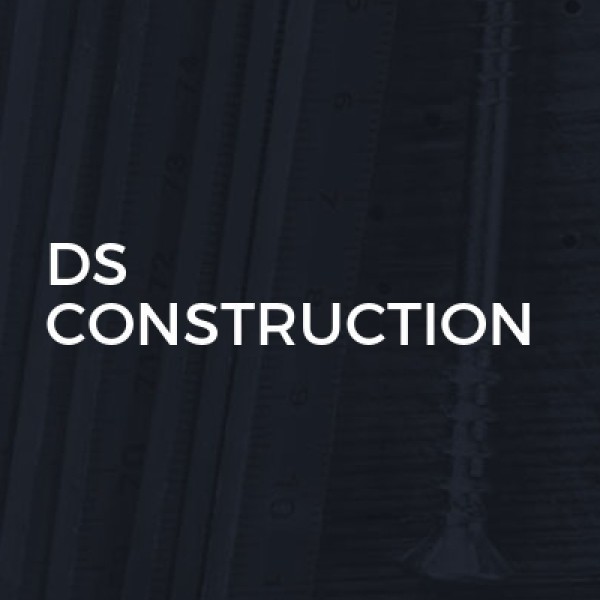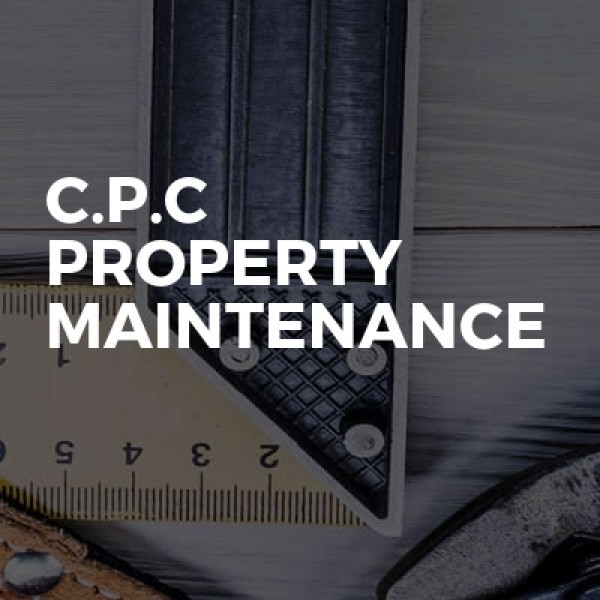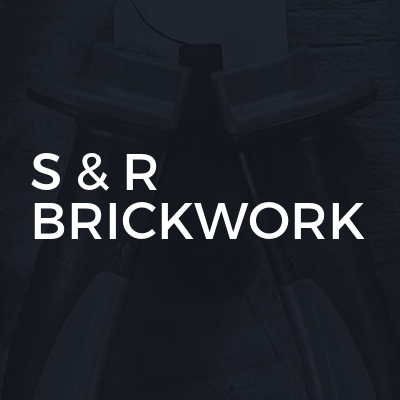Extension Builders in West Sussex
Welcome to JS Building, your premier choice for expert tradespeople services in Sompting and throughout West Sussex. As a distinguished c... read more »
DS Construction is a reputable building firm located in the heart of North Bersted, proudly serving the... read more »
Welcome to Road2Ridge Constructions, your premier choice for extension builders, renovations, landscaping contractors, driveway contracto... read more »
R&R Construction Ltd is a premier Southgate-based company, offering exceptional tradespeople services throughout the vib... read more »
Welcome to Domibrothers Ltd, your go-to experts for outstanding building and landscaping services in Southgat... read more »
Grande Building Group Ltd is a distinguished company nestled in the heart of Fishersgate, offering an extensive array of... read more »
Welcome to Acorn Roofing & Building Services, your premier choice for builders, extension builders, roofers, bathroom fitters, and kitche... read more »
Welcome to JFD Facilities and Construction, your go-to experts for all building and renovation needs in Elmers Marsh and throughout West... read more »
Welcome to HP Building Services Sussex, your trusted partner for all construction and property maintenance needs in Peacehaven... read more »
Welcome to NUTBOURNE Construction Ltd, your trusted partner for exceptional building services in Nutbourne and across West Sussex. As a p... read more »
Welcome to Arkview Ltd, your premier choice for builders, carpenters, roofers, and property maintenance experts in Felpham and across Wes... read more »
Welcome to C.P.C Property Maintenance, your trusted partner for all building and renovation n... read more »
Surrey And Sussex Construction And Building Ltd is a reputable company based in the charming village of Copthorne, offer... read more »
S & R Brickwork is your go-to solution for all your building and renovation needs in Burgess Hill and t... read more »
LJR Building Services is a premier choice for all your construction and renovation needs in Fishersgate... read more »
Welcome to G&D Specialists Limited, your premier choice for expert construction and groundwork services in North End, West Sussex. As a l... read more »
Welcome to Natcon UK Ltd, your premier choice for top... read more »
Welcome to Maytrix Property Services Ltd, your truste... read more »
Search Extension Builders in West Sussex by town
Introduction to Extension Builders in West Sussex
West Sussex, a picturesque county in the South of England, is renowned for its charming villages, rolling countryside, and historic architecture. As the demand for housing increases, many homeowners are opting to extend their existing properties rather than move. This is where extension builders in West Sussex come into play. These skilled professionals help transform homes by adding space and value, ensuring that properties meet the evolving needs of their owners.
Understanding the Role of Extension Builders
Extension builders are specialists in adding new structures to existing homes. Their work involves a blend of creativity, technical skill, and project management. They handle everything from initial design concepts to the final touches, ensuring that each extension is seamlessly integrated with the original building. These builders must be adept at navigating planning permissions and building regulations, ensuring that all work complies with local laws.
The Importance of Choosing the Right Builder
Choosing the right extension builder is crucial for the success of your project. A reputable builder will not only deliver high-quality work but also provide valuable advice and guidance throughout the process. They will help you make informed decisions about materials, design, and layout, ensuring that your extension meets your needs and budget.
Key Qualities to Look For
- Experience: Look for builders with a proven track record in similar projects.
- Reputation: Check reviews and testimonials from previous clients.
- Communication: Choose a builder who communicates clearly and regularly.
- Transparency: Ensure they provide detailed quotes and timelines.
Types of Extensions Offered by Builders
Extension builders in West Sussex offer a variety of options to suit different needs and preferences. Whether you're looking to add a single room or a multi-storey addition, there's a solution for every homeowner.
Single-Storey Extensions
Single-storey extensions are a popular choice for those looking to add extra living space without altering the overall structure of their home. These extensions can be used to create open-plan kitchens, additional living rooms, or even home offices.
Double-Storey Extensions
For those needing more space, double-storey extensions provide an excellent solution. These extensions add significant square footage to a home, often including additional bedrooms and bathrooms. They are ideal for growing families or those looking to increase the value of their property.
Conservatories and Orangeries
Conservatories and orangeries offer a unique way to bring the outdoors in. These glass structures provide a light-filled space that can be used year-round. They are perfect for dining areas, lounges, or even indoor gardens.
Planning and Designing Your Extension
The planning and design phase is a critical step in the extension process. It involves working closely with your builder to create a design that meets your needs while adhering to local regulations.
Initial Consultation and Site Assessment
During the initial consultation, your builder will assess your property and discuss your requirements. This is an opportunity to explore different design options and establish a realistic budget and timeline for the project.
Design and Architectural Plans
Once the initial consultation is complete, your builder will work with architects to create detailed plans for your extension. These plans will include floor layouts, elevations, and specifications for materials and finishes.
Obtaining Planning Permission
In many cases, planning permission is required for home extensions. Your builder will guide you through the application process, ensuring that all necessary documentation is submitted and that your plans comply with local regulations.
Construction Process and Timeline
The construction phase is where your vision becomes a reality. This stage involves several key steps, each of which is crucial to the success of your project.
Site Preparation and Groundwork
Before construction can begin, the site must be prepared. This involves clearing the area, setting up temporary facilities, and laying the groundwork for the extension. Proper site preparation is essential for ensuring a stable and durable structure.
Building the Structure
With the groundwork complete, the construction of the extension can begin. This involves erecting the walls, installing the roof, and fitting windows and doors. Throughout this process, your builder will ensure that all work is carried out to the highest standards.
Finishing Touches and Inspections
Once the main structure is complete, attention turns to the interior. This includes plastering, painting, and installing fixtures and fittings. Finally, the extension will undergo a series of inspections to ensure compliance with building regulations.
Cost Considerations and Budgeting
Understanding the costs involved in building an extension is essential for effective budgeting. Several factors can influence the overall cost, including the size and complexity of the project, the materials used, and the location of your property.
Factors Affecting Extension Costs
- Size and Scale: Larger extensions typically cost more due to the increased materials and labour required.
- Materials: The choice of materials can significantly impact the cost. High-end finishes and bespoke features will increase the budget.
- Location: Costs can vary depending on the location of your property, with urban areas often being more expensive.
Creating a Realistic Budget
To create a realistic budget, it's important to consider all potential costs, including design fees, planning permission, and unexpected expenses. Your builder can help you identify these costs and provide a detailed quote for the project.
Benefits of Home Extensions
Home extensions offer numerous benefits, making them an attractive option for many homeowners. They provide additional space, enhance the functionality of your home, and can significantly increase its value.
Increased Living Space
One of the primary benefits of a home extension is the additional living space it provides. This extra space can be used for a variety of purposes, from creating a larger kitchen to adding a new bedroom or home office.
Enhanced Property Value
Extensions can also increase the value of your property. By adding square footage and improving the overall layout, you can make your home more attractive to potential buyers, should you decide to sell in the future.
Customisation and Personalisation
Extensions offer the opportunity to customise and personalise your home to better suit your lifestyle. Whether you're looking for a modern open-plan design or a traditional style, an extension allows you to create a space that reflects your tastes and preferences.
Challenges and Solutions in Home Extensions
While home extensions offer many benefits, they can also present challenges. Understanding these challenges and how to overcome them is key to a successful project.
Common Challenges
- Planning Permission: Navigating the planning permission process can be complex and time-consuming.
- Budget Overruns: Unexpected costs can arise, leading to budget overruns.
- Disruption: Construction work can be disruptive to your daily life.
Effective Solutions
- Expert Guidance: Work with experienced builders who can guide you through the planning process.
- Contingency Planning: Include a contingency fund in your budget to cover unexpected expenses.
- Clear Communication: Maintain open communication with your builder to minimise disruption and address any issues promptly.
Frequently Asked Questions
What is the average cost of a home extension in West Sussex?
The cost of a home extension in West Sussex can vary widely depending on the size and complexity of the project. On average, you can expect to pay between £1,200 and £2,000 per square metre.
How long does it take to complete a home extension?
The timeline for a home extension can vary depending on the scope of the project. Generally, a single-storey extension can take between 3 to 6 months to complete, while a double-storey extension may take 6 to 12 months.
Do I need planning permission for a home extension?
In many cases, planning permission is required for home extensions. However, some smaller projects may fall under permitted development rights. It's important to consult with your builder and local planning authority to determine the requirements for your project.
Can I live in my home during the extension process?
In most cases, you can continue to live in your home during the extension process. However, there may be periods of disruption, particularly during major construction work. Your builder can advise you on how to minimise disruption and maintain a comfortable living environment.
What are the most popular types of home extensions?
Popular types of home extensions include single-storey extensions, double-storey extensions, and conservatories. Each type offers unique benefits and can be tailored to suit your specific needs and preferences.
How can I ensure my extension is energy efficient?
To ensure your extension is energy efficient, consider using high-quality insulation, energy-efficient windows and doors, and sustainable building materials. Your builder can provide advice on the best options for your project.
Final Thoughts on Extension Builders in West Sussex
Extension builders in West Sussex play a vital role in helping homeowners enhance their properties. By choosing the right builder and carefully planning your project, you can create a beautiful and functional space that meets your needs and adds value to your home. With the right approach, a home extension can be a rewarding investment that enhances your quality of life for years to come.
Send a message




















